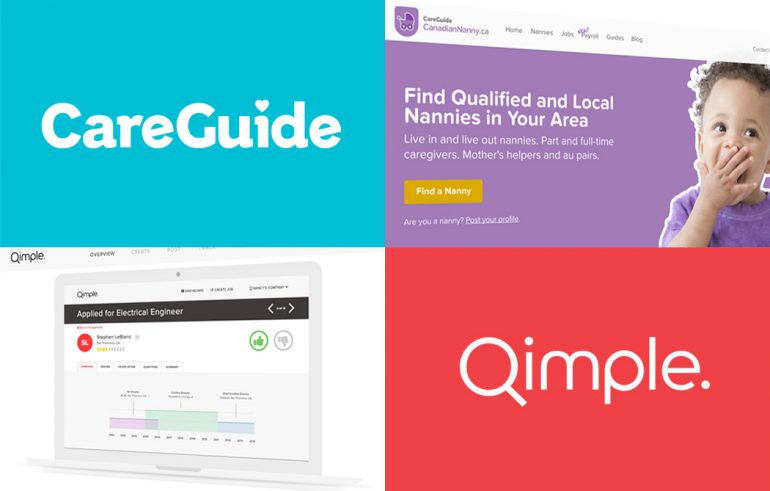Toronto’s CareGuide is known for making its own road. The care marketplace startup, which has a portfolio of sites like Sitter.com and Housekeeper.com, has taken a unique approach to fundraising and growth: predominantly raising $4 million in seed funding from over 70 angel investors, and convincing RBC to supply $1 million in debt financing to gobble up the competitor which inspired its business. Today, CareGuide announced a strategic investment in Moncton-based Qimple.
Qimple provides an online hiring platform CareGuide uses to ensure its marketplaces are well-stocked with nannies, housekeepers, and so on. While startup founders often make early-stage investments in other startups (and Brian Sharwood, VP of Operations at CareGuide, and an angel investor in CareGuide before joining the company full time, is also personally investing in Qimple), company-level investments are something usually expected of, say, Slack, which has a $3.8 billion valuation. But at this point, the unorthodox is the expected for CareGuide’s Chief Executive Officer Dad, John Philip Green.
Calling the investment a “modestly-sized bet” for CareGuide (terms of the investment were not disclosed), Green explained that the deal evolved naturally in an exclusive interview with BetaKit.
“[Qimple founder Yves Boudreau] & I consult with each other on strategy as we build our adjacent companies. At some point we started working together,” Green said. “Recently when we discussed Qimple’s need for more capital in 2016, I believe it occurred to me first that CareGuide could help in that regard, in exchange for the more extensive partnership I wanted. The expanded partnership bolsters some core drivers to our care marketplaces.”

Boudreau reinforced the notion that the investment worked at both the founder and core business levels.
“When we opened the round, John thought it would make a lot of sense for CareGuide to invest given how continuously Qimple and CareGuide worked together,” he said. “When the conversation came up I was excited to have someone of John’s pedigree showcase so much enthusiasm and belief in what we were doing.”
Boudreau also dismissed the notion that an investment from another startup rather than an institutional investor might send the signal to customers that the company could soon be acquired.
“It sends an amazing signal, not only to customers, but to the eco-system as a whole,” Boudreau said. “Having one of Canada’s fastest and most recognized startups actively investing in us is yet another validation for our company. I believe it’ll open up more doors and increase our profile within our potential client base.”
“Companies aren’t going to avoid using Qimple because we may be acquired someday. They’re using us because we fulfil a need that they have.”
When I asked Green why he didn’t just buy Qimple outright, he was quick to avoid jumping to foregone conclusions. “Both companies are growing quickly,” he said. “Our partnership and minority equity stake suits us both well right now.”
“Besides, Qimple appears to have little trouble raising money.”


